What happens now that Roe v. Wade has been overturned?

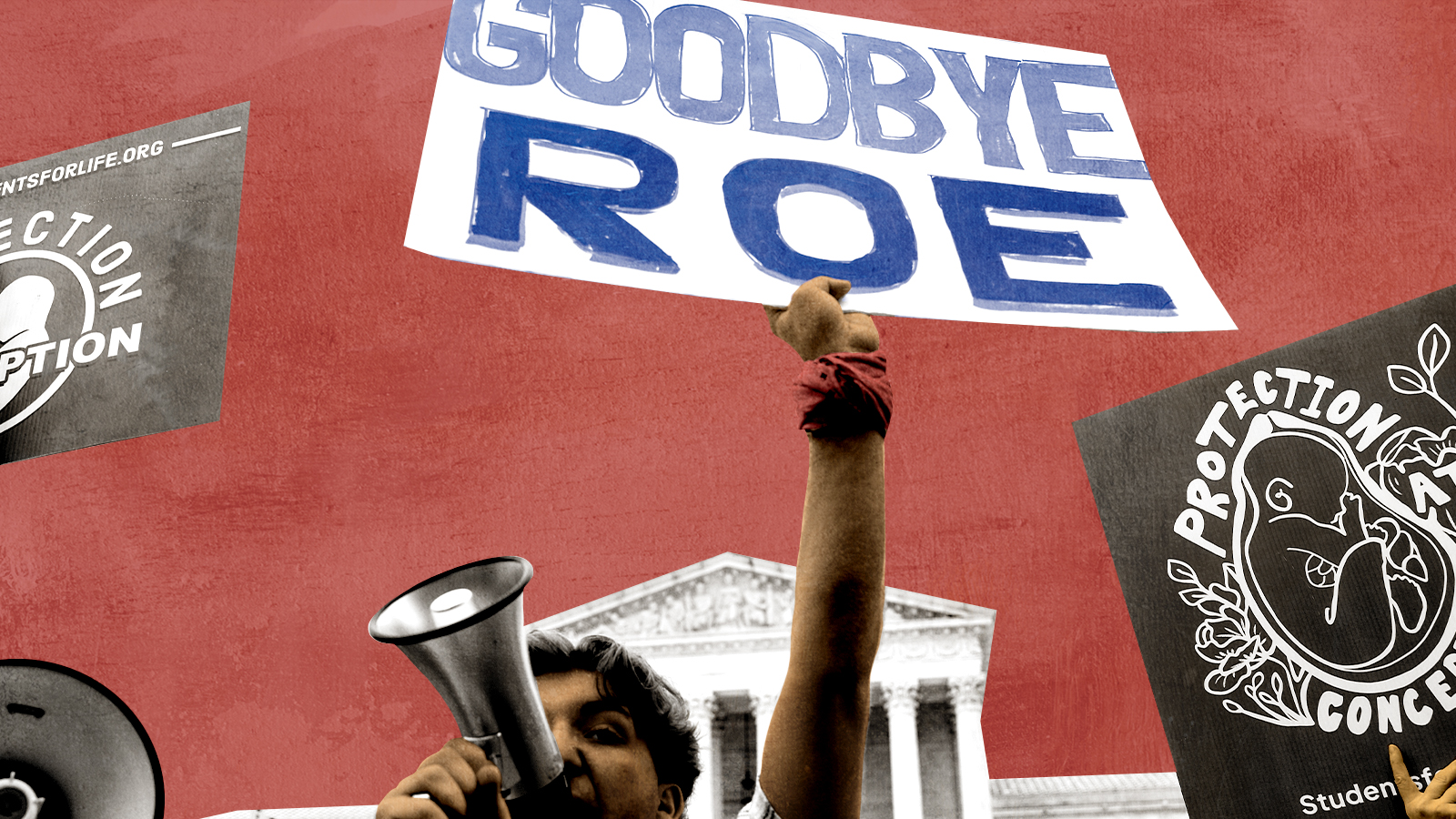
A free daily email with the biggest news stories of the day – and the best features from TheWeek.com
You are now subscribed
Your newsletter sign-up was successful
The Supreme Court on Friday voted 6-3 to overturn federal abortion rights as protected under 1973's landmark Roe v. Wade decision, bringing an end to nearly 50 years of precedent. Despite being somewhat expected, as per a draft majority opinion leaked back in May, the ruling immediately sparked a widespread firestorm of both celebration and condemnation. But what exactly happens now? Here's everything you need to know:
Back up — what did the opinion say?
The specific case before the court — Dobbs v. Jackson Women's Health Organization — pertained to a Mississippi law banning abortions after 15 weeks of pregnancy, much earlier than the fetal viability threshold established by Roe. In siding with Mississippi on Friday, writes The Wall Street Journal, the court's six conservative members deemed the Roe decision to be "egregiously wrong" and "an error the court perpetuated in the decades since."
"We hold that Roe and Casey must be overruled," the majority wrote in its opinion, referencing 1992's Planned Parenthood v. Casey, which was also struck down. "The Constitution makes no reference to abortion, and no such right is implicitly protected by any constitutional provision … Roe was egregiously wrong from the start. Its reasoning was exceptionally weak, and the decision has had damaging consequences."
The Week
Escape your echo chamber. Get the facts behind the news, plus analysis from multiple perspectives.

Sign up for The Week's Free Newsletters
From our morning news briefing to a weekly Good News Newsletter, get the best of The Week delivered directly to your inbox.
From our morning news briefing to a weekly Good News Newsletter, get the best of The Week delivered directly to your inbox.
"It is time to heed the Constitution and return the issue of abortion to the people's elected representatives," they added.
Dissenting Justices Elena Kagan, Sonia Sotomayor, and Stephen Breyer just as potently rejected the majority's position. "With sorrow — for this court, but more, for the many millions of American women who have today lost a fundamental constitutional protection," the court's liberals wrote in their joint opinion: "We dissent."
Is abortion now illegal everywhere?
Not necessarily. In overruling Roe, the court has sent the issue of abortion back to the states, where its legality will be decided on an individual basis. Some states, like New York and California, have already codified the right to an abortion into law, and will be therefore largely unaffected by Friday's decision. But others, like South Dakota, Louisiana, and Kentucky, have laws that now immediately ban the procedure in Roe's absence. The same goes for Oklahoma and Texas. All make exceptions for the life of the mother.
Elsewhere, in Idaho, Utah, North Dakota, Wyoming, Arkansas, Tennessee, and Mississippi, these so-called "trigger bans" — laws designed to come into play should Roe disappear — will take effect after 30 days, and/or after a state official certifies the court's decision.
A free daily email with the biggest news stories of the day – and the best features from TheWeek.com
But in states without trigger bans — like Alabama, Georgia, Iowa, Ohio, and South Carolina — laws that forbid most or all abortions are likely to go into effect in the near future, The Washington Post notes. And in states like Pennsylvania, Arizona, and Virginia, the fate of reproductive rights "will depend on the upcoming midterms."
How has the pro-life movement responded?
Anti-abortion groups have thus far praised the court's decision. At this weekend's National Right to Life Convention, for example, attendees hugged one another and grew emotional upon hearing the news.
"We are all excited," Carol Tobias, the committee's president, told CNN. "Of course, everybody here is erupting in tears of joy that this has finally happened. We are going to be celebrating for the rest of the weekend."
Still, she said, "We have a long battle ahead of us. Abortion is not going to be illegal because of this decision. … We certainly know this is not the end."
"I can barely talk," added Lynda Bell, chair of the board of NRLC, as well as the president of Florida Right to Life. "We have waited for this for 49 years, and finally, the court has recognized their egregious decision that stripped the states of the ability to protect life."
Meanwhile, a crowd gathered outside the Supreme Court in Washington, D.C. As abortion rights protesters mourned, pro-life demonstrators applauded the decision and "danced to celebratory music," reports The New York Times.
What about the pro-choice movement?
Abortion rights supporters outside the court on Friday reacted with "despair and outrage," the Post reports. Some said they intended to defy efforts to restrict abortion, even in states where it could become illegal, the Times adds.
"To anyone today who is scared, or angry, or determined, know this — 17 million Planned Parenthood supporters proudly stand with you," Planned Parenthood Action Fund President Alexis McGill Johnson said in a statement on Friday. "We will rebuild and reclaim the freedom that is ours. We won't go back. And we won't back down."
And though President Biden harbors somewhat conflicted feelings regarding abortion, he nonetheless denounced the court's decision during a speech on Friday, calling the ruling a "tragic error."
Might other decisions now be overturned?
Justice Clarence Thomas suggested in a concurring opinion that perhaps the court should revisit several other consequential cases — like those pertaining to same-sex marriage and contraception — now that Roe has been successfully overturned.
"In future cases, we should reconsider all of this Court's substantive due process precedents, including Griswold, Lawrence, and Obergefell," Thomas argued. 1965's Griswold v. Connecticut established a married couple's constitutional right to contraceptives, while 2003's Lawrence v. Texas ruled states may not ban sodomy. 2015's Obergefell v. Hodges protected same-sex marriage as a constitutional right.
Will there be legal ramifications?
The court's decision is about to cause "legal chaos" nationwide, Julie Rikelman, senior director of litigation at the Center for Reproductive Rights, told NPR. "I think what we will see is far more litigation in the federal courts – not less litigation."
Greer Donley, a law professor specializing in reproductive health care, agreed: "It's going to be a real nightmare," she told Politico, warning that a clear legal picture is only likely to emerge once a few months have passed.
Litigaton may also unfold in state courts where local constitutions perhaps offer "protections for abortion rights notwithstanding the U.S. Supreme Court's interpretation of the U.S. Constitution," NPR writes. And that's all without mentioning the murky issue of bans and their legal ramifications bleeding over from one state to another.
"This just raises a whole host of issues," Rikelman said, to NPR. "All of those different disputes will have to be worked out in the courts" — even perhaps the Supreme Court.
Update 3:30 p.m. ET June 24, 2022: This article has been updated with an additional section on legal challenges.
Brigid Kennedy worked at The Week from 2021 to 2023 as a staff writer, junior editor and then story editor, with an interest in U.S. politics, the economy and the music industry.
-
 How the FCC’s ‘equal time’ rule works
How the FCC’s ‘equal time’ rule worksIn the Spotlight The law is at the heart of the Colbert-CBS conflict
-
 What is the endgame in the DHS shutdown?
What is the endgame in the DHS shutdown?Today’s Big Question Democrats want to rein in ICE’s immigration crackdown
-
 ‘Poor time management isn’t just an inconvenience’
‘Poor time management isn’t just an inconvenience’Instant Opinion Opinion, comment and editorials of the day
-
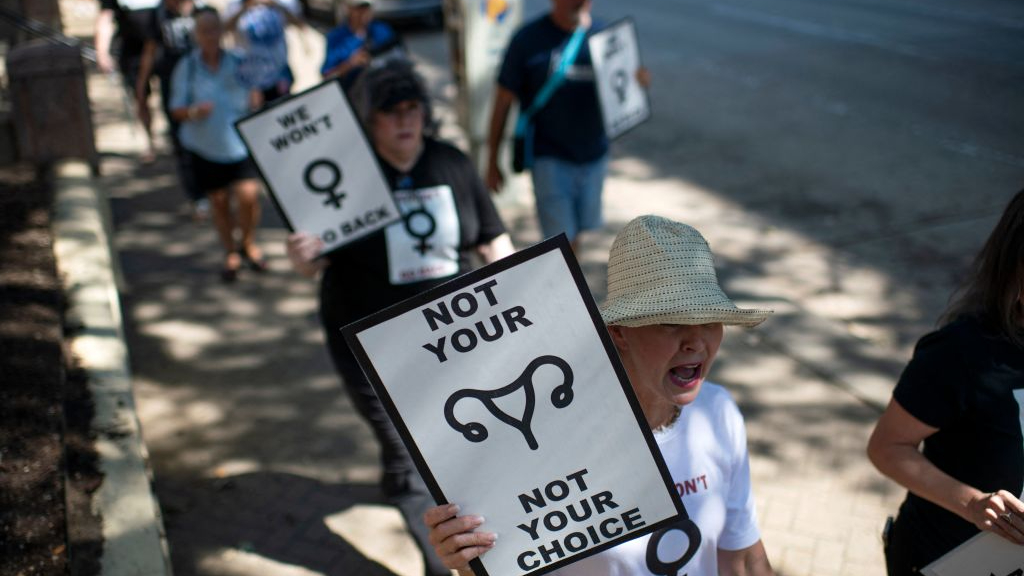 Texas judge approves abortion of nonviable fetus, drawing threat from Texas attorney general
Texas judge approves abortion of nonviable fetus, drawing threat from Texas attorney generalSpeed Read Kate Cox petitioned to terminate her doomed pregnancy, salvaging her uterus and the option to try for more children
-
 Is the Comstock Act back from the dead?
Is the Comstock Act back from the dead?Speed Read How a 19th-century law may end access to the abortion pill
-
 Targeting the press
Targeting the pressSpeed Read Some public officials want to roll back long-standing legal protections for journalists. Might they succeed?
-
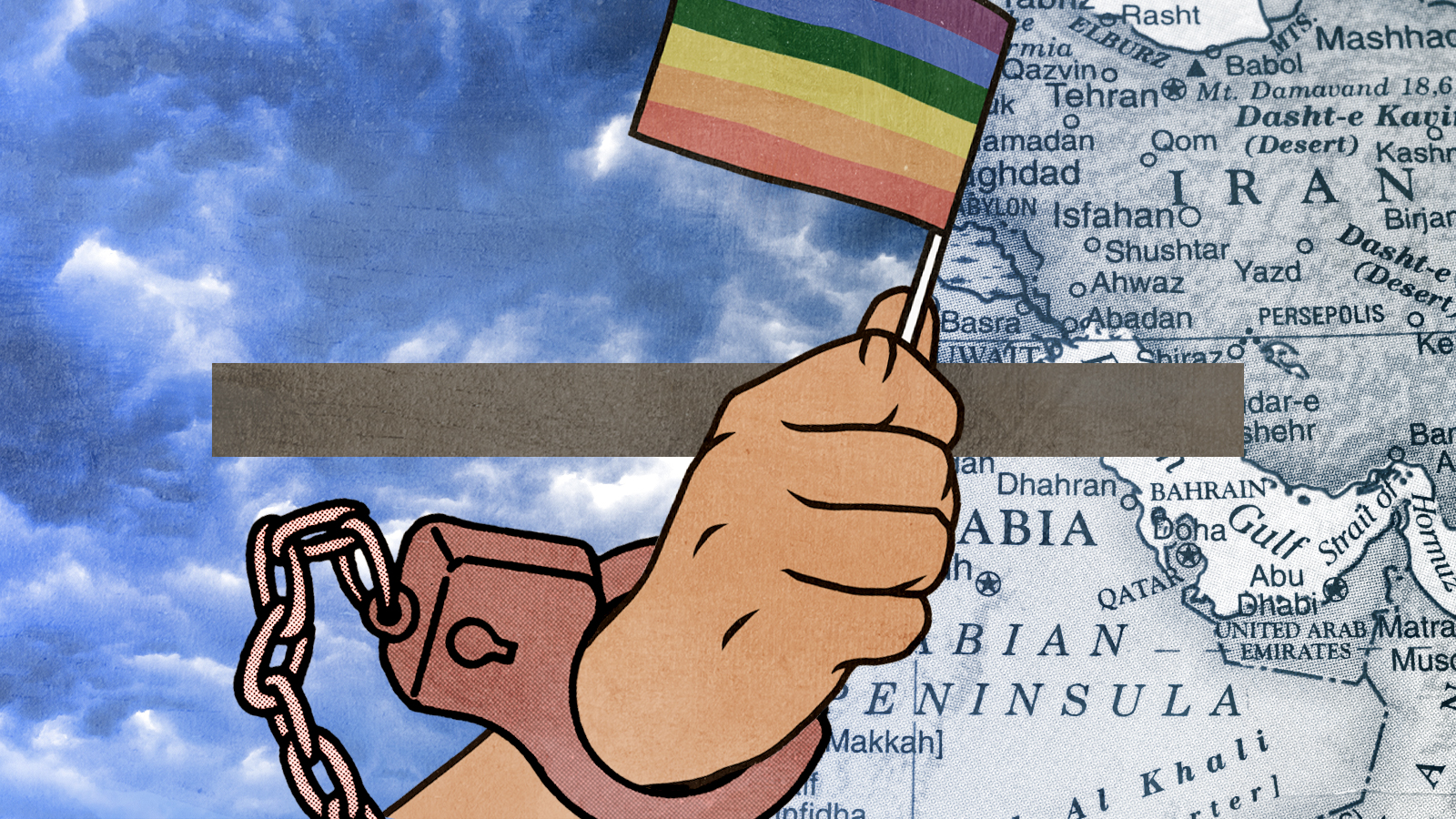 The dangers faced by LGBTQ people in the Middle East
The dangers faced by LGBTQ people in the Middle EastSpeed Read Why do so many Middle Eastern countries have anti-LGBTQ laws, and what can be done to make a change?
-
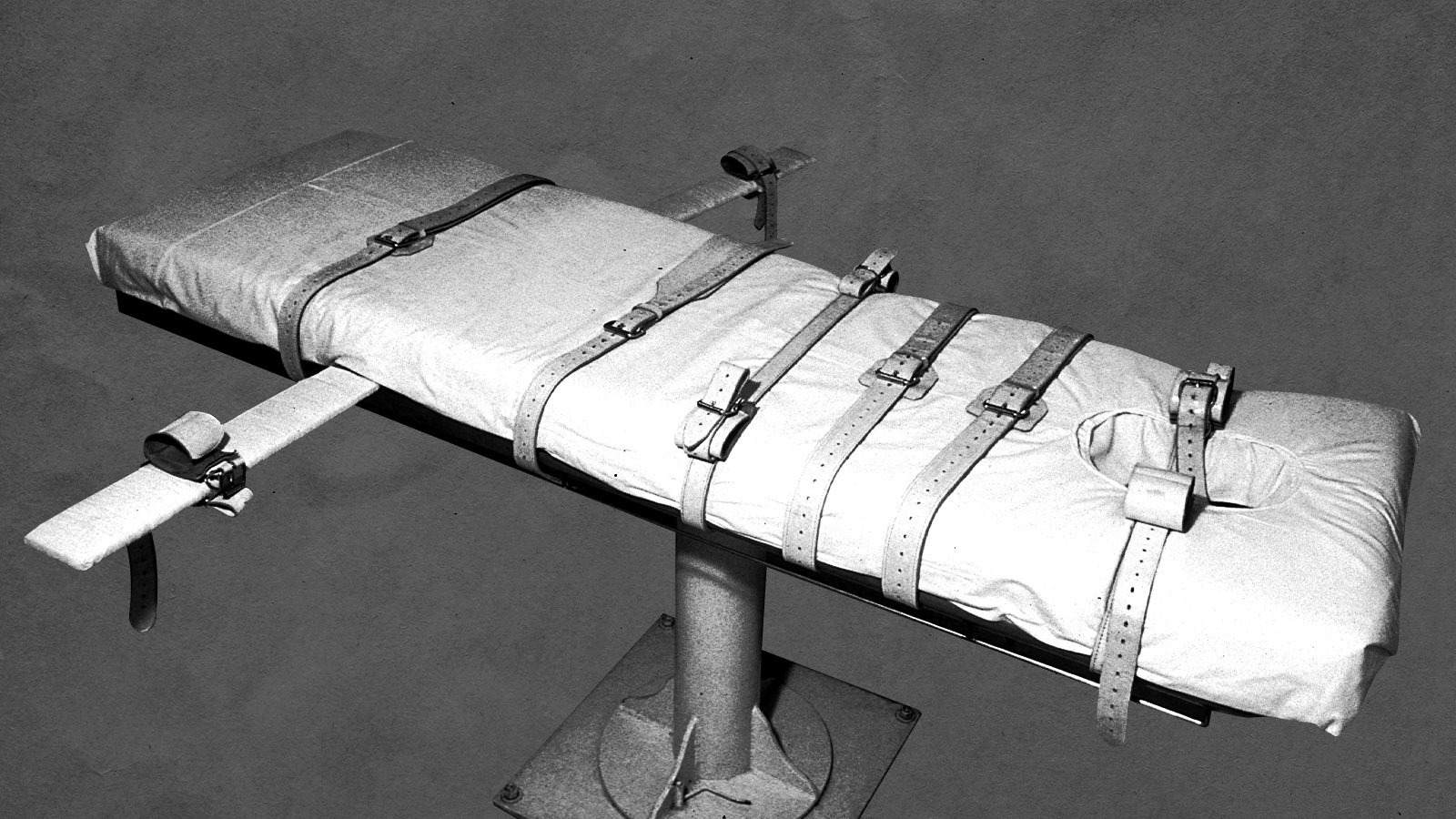 Why is Alabama pausing its executions?
Why is Alabama pausing its executions?Speed Read Many states are struggling to carry out the death penalty
-
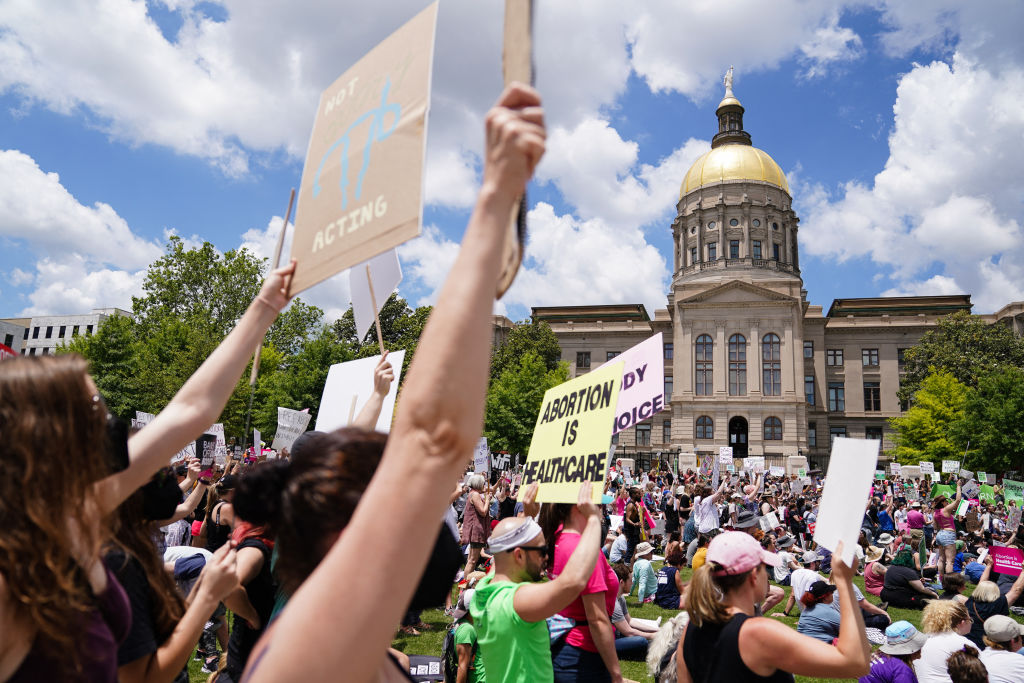 Judge blocks Georgia's 6-week abortion ban
Judge blocks Georgia's 6-week abortion banSpeed Read
-
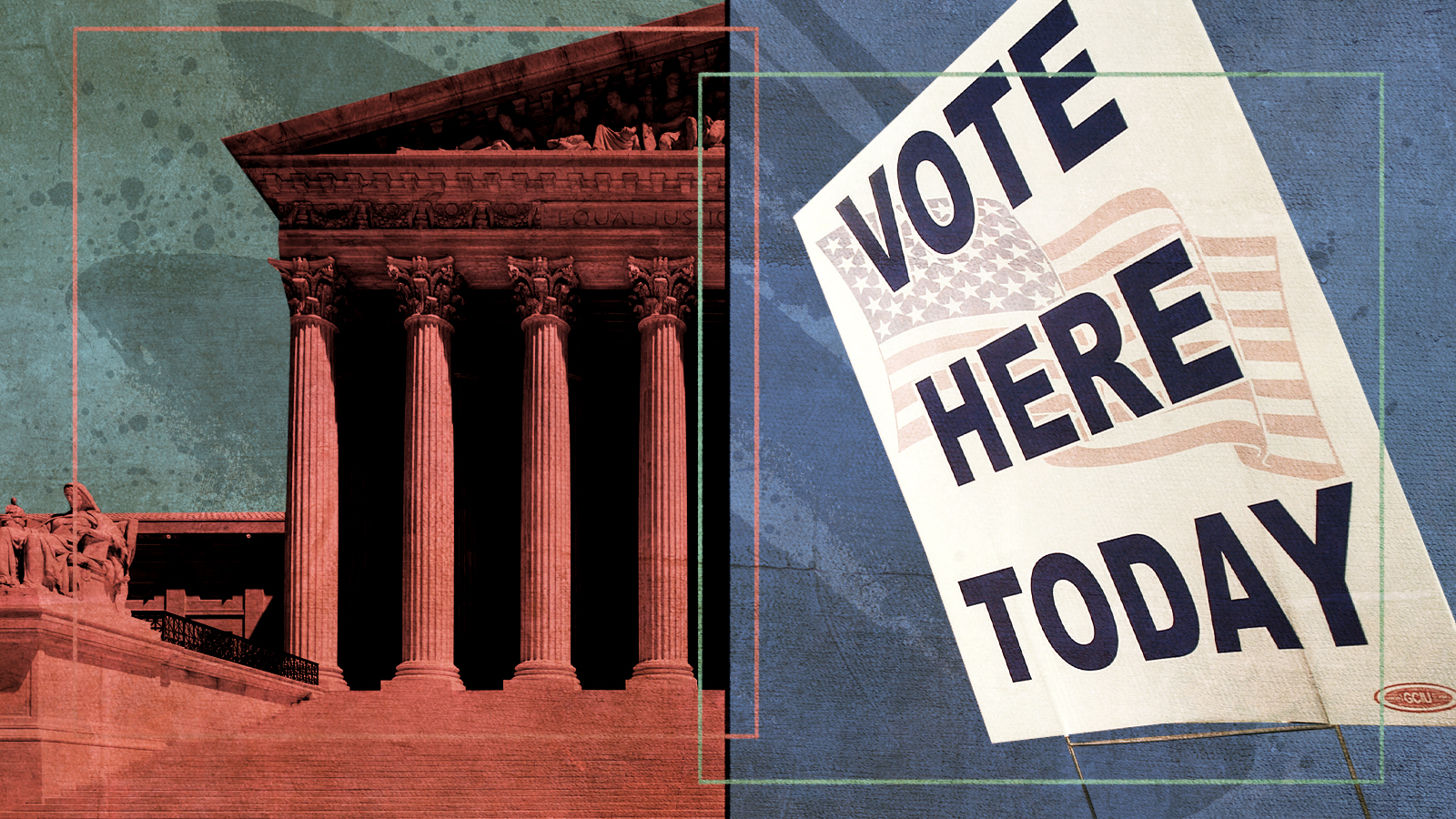 Will abortion decide the 2024 presidential race?
Will abortion decide the 2024 presidential race?Speed Read After Dobbs and the midterm elections, the landscape has shifted
-
 The crisis in Haiti, explained
The crisis in Haiti, explainedSpeed Read Calls for foreign intervention have mounted as the island nation's situation has deteriorated
